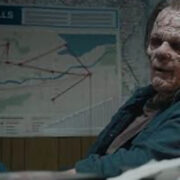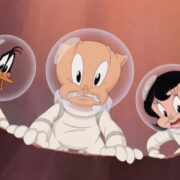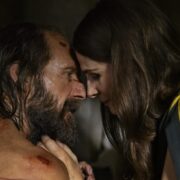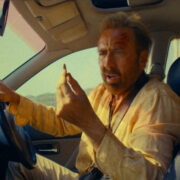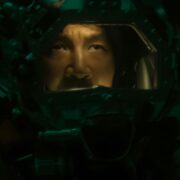“Look At What Unites Us, Not At What Divides Us”: Interview With Christopher André Marks, Director Of KING OTTO
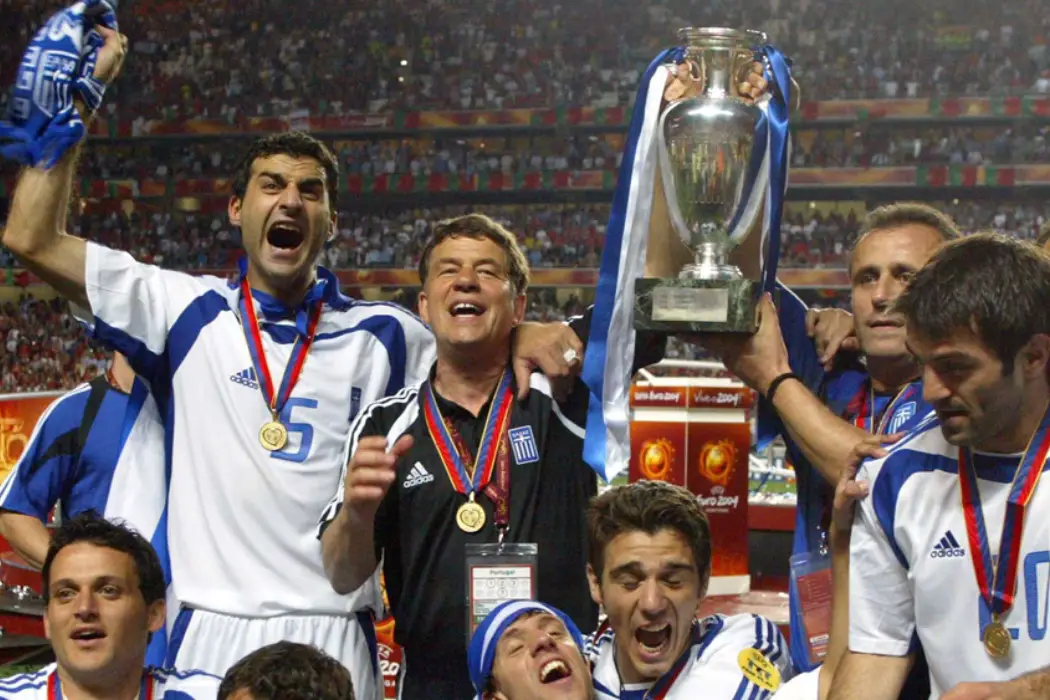
Lee Jutton has directed short films starring a killer toaster,…
Excluding those who choose to ally themselves with giants, everyone loves a good underdog victory. The element of the unexpected combined with the fairy-tale heroism of rising above one’s circumstances to achieve greatness is irresistible. The games we continue to talk about for years after the clock runs out aren’t the ones where the predicted outcome was delivered without incident, but games like the 1980 Miracle on Ice, in which a team of young, mostly amateur U.S. players somehow beat the mighty Soviet Union during the Olympics, or the 1969 Super Bowl, in which the AFL’s New York Jets beat the heavily favored Baltimore Colts of the NFL to win their only championship to date.
One such victory took place in sunny Portugal during the summer of 2004, in which the national football team of Greece stunned the host nation — a team packed with big names like Cristiano Ronaldo and Luis Figo — to win the European championship. In a sport where the distance between Davids and Goliaths seems to grow larger and more insurmountable each day, it does one good to revisit and celebrate such a thrilling triumph against the odds (unless I suppose, you are Portuguese).
The feature-length documentary King Otto does just that. Directed by Christopher André Marks, the film chronicles how the titular character, legendary German football coach Otto Rehhagel, led the Greeks to victory despite significant challenges, including not even speaking his players’ language. I had the privilege of sitting down with Marks to discuss his reasons for revisiting Euro 2004, his favorite moments from making the film, and the lessons we can take away from this inspiring story that goes beyond sports.
Lee Jutton for Film Inquiry: What made you first want to direct a film about this? Obviously, it’s a great story, but what made you personally want to be the one to tell it?
Christopher André Marks: Well, I’m of Greek descent myself, and it was very much a once in a generation moment for all Greeks — something that, when it happened eighteen years ago, I was thinking at the time, “This is almost too good to be true, someone has to make a movie out of it.” And after eighteen years, nobody had. So I basically decided I was going to do it myself.
How did you go about reaching out to Otto Rehhagel? He seemed to really enjoy being in the film.
Christopher André Marks: He’s as charming in person as he is in the movie. He’s a pleasure to be around and he was so engaging on-screen… it wasn’t necessarily the idea, in the beginning, to have him be the focal point and the one telling the story, but you can’t look away when he’s speaking. So it was an easy choice once we started and saw how great he was on camera. It was really great to work with him.
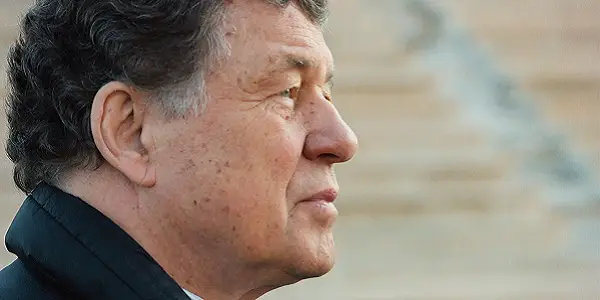
Were any of the players hesitant to appear in the film, or were they eager to revisit the tournament? I imagine that for many of them, it was the highlight of their careers.
Christopher André Marks: They were great to work with as well and very gracious with their time. It was one of those moments, I think, where when they were telling the story on camera, it felt like it happened the day before. The detail with which they were describing everything and the emotions they had while telling it really come through in the film. It was an honor to bring their story to the big screen.
I was impressed at the way King Otto glides through the earlier part of Otto Rehhagel’s career. He’s one of the most successful coaches in Bundesliga history, and the film spends very little time on that. But at the same time, it’s just enough so that the audience is able to appreciate his prestigious reputation in world football prior to taking the Greece job. That’s a tricky balance to strike. Was that a particularly difficult sequence to piece together, in light of the wealth of footage and facts you had to draw upon?
Christopher André Marks: That was one of the big challenges, really, because he has such a long history in Germany. It was really important that we took his own approach and stayed disciplined and true to what was necessary. We were telling the story of Mr. Rehhagel’s journey to Greece and how he inspired that team to achieve the impossible. That was our story, so it was very important that we didn’t get lost along the way with too many details about his career. At the same time, we had to do justice to his incredible career and show how unlikely it would be for someone like him to go and take on the Greek team.
I really liked the way his interviews took place on that majestic chair in the great hall. It’s just a striking visual that really drives home his reputation as King Otto. How did you come up with that idea, and how did Mr. Rehhagel react to it?
Christopher André Marks: Yeah, we didn’t tell him beforehand. [laughs] He just showed up and we had the throne there, and we said, “I think this would be a good idea.” And he’s very sure of himself and confident and said, “Of course, of course, I would sit on the throne.” So it all just worked out that way.
Another character in the film who I thought was fascinating and obviously very important to the success of the Greek team was Ioannis Topalidis, the German-born Greek assistant whose hiring seems to have been a turning point during Mr. Rehhagel’s earliest days coaching the team. Tell me more about their relationship and how it helped Greece win.
Christopher André Marks: He really was the unsung hero, the missing piece needed for the team to be successful. A German coming to Greece, without speaking Greek… they didn’t really have a translator, they were just kind of expecting [Mr. Rehhagel] to go and work his magic. Which was shocking, actually. But what Mr. Topalidis was able to do was translate not only the language but the culture. He understood the psychology of both sides and the cultural tendencies, and he bridged that gap tremendously. The team was successful in large part due to his involvement.
I really like the way the film ended with him and Mr. Rehhagel together, talking about how they were still friends… they seem like they have a wonderful dynamic.
Christopher André Marks: They do. The two of them together was just like comedy for us, watching them interact, because they play off each other and have known each other for twenty years now…it’s just a great relationship.
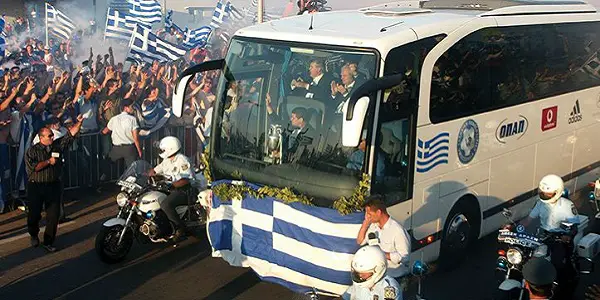
Is there anything that stands out as a favorite experience from the making of the film?
Christopher André Marks: I think the morning we shot the scene at Olympic Stadium in Athens. We were alone in the stadium where the first modern Olympic games were held and where the team celebrated when they came back to Greece after winning Euro 2004. Just being there and having it closed down for us…it was the first time Mr. Rehhagel and Mr. Topalidis had been back to the stadium since they won. So being able to watch his reaction, and see him take it all in, was really special for us.
That definitely sounds like a powerful moment to experience in person. You get that feeling in the film as well. Was there anything particularly funny or interesting that got left on the cutting room floor that you were really tempted to keep in?
Christopher André Marks: The interactions with the crew and what was happening behind the scenes became its own character in the film, and we had it as a motif throughout, but there were so many more instances like that. When Mr. Rehhagel started singing the Greek national anthem, and people started clapping intensely — beyond the clapping you hear in the film — we had to say “You guys, we’re recording live here.” [laughs] With a room full of Greeks, you could just see how important this story was to Greeks. Whether they were working on the film or watching, just being in Mr. Rehhagel’s presence… I mean, he’s like The Beatles when it comes to Greece, he gets mobbed at the airport. So that was definitely a special moment.
One thing that stuck with me from the film is that Mr. Rehhagel got off to a bad start with the Greek team, but he was given the trust of the president of the Greek Football Federation, Vassilis Gagatsis, and the chance to keep working and trying to make things better. It feels like coaches today are not given the same kind of trust—people are very impatient for success and coaches are expected to win immediately. Do you have any thoughts about that?
Christopher André Marks: Yeah to the credit of Mr. Gagatsis, he did give him that leash. I think part of it was knowing that [Mr. Rehhagel] was an extremely successful coach in Germany. So even though the Greek press and everybody else was quick for his head after one game — the 5-1 loss to Finland [in September 2001]—I think they were able to temper the federation’s own tendency to want to jump the gun. That patience and that foresight paid off, obviously, giving him that chance to catch his footing. He’d only been in Greece for about a week at the time of the first game and they were already ready to fire him. It may have been different had they not tied England in England in their second game [in October 2001] — that was definitely a key point and a stepping stone for what came after.
One headline featured in the film describes Greece as the one underdog that no one wanted to root for due to their defensive style of play, which Mr. Rehhagel described as controlled offense. I found that very interesting, especially the way he described those tactics. Personally, I think that people hate “negative” or defensive football until their team wins playing it, and then they love it. What were you able to glean from the players and coaches about how much that kind of criticism bothered them during the tournament?
Christopher André Marks: Mr. Rehhagel’s view was that it doesn’t matter how you win, as long as you win. So that was the motto he went into [Euro 2004] with and I think the players bought into that strategy and tuned out the noise. Even the internal noise — people were criticizing the way they played even in Greece. People can criticize all they want, but they looked at their team, said this is what we have, these are the players we have, this is a system we can play. Who cares if we play defensive football, because, you know, we don’t have Messi, we don’t have Ronaldo, we have to be true to who we are and find a way to win and a tactic that works for us. And if we played offensively and opened up, there’s no way we’d beat France. There’s no way we’d beat Portugal. But by cultivating their identity and, to Mr. Rehhagel’s credit, his own tactical genius, they implemented a strategy that allowed them to be successful.
Greece at Euro 2004 is spoken of as one of the great underdog victories in the history of sports, especially in football. It feels like those kinds of underdog victories are becoming even rarer today because of the amounts of money being poured into certain teams and certain federations…it feels like the gulf between established powerhouses and underdogs is bigger than ever. Do you think a victory like that of Greece in 2004 is still possible in today’s football world?
Christopher André Marks: I mean, not for Greece, it’s not possible. [laughs] But for other countries…Iceland had a run, Wales had a run, Leicester City won [the Premier League in 2016] playing a similar style. I think smaller teams that don’t necessarily have the major international stars start to identify what they can do, and Greece in 2004 became a model for that going forward. The Italians would play catenaccio, a style of counterattack-defense-counterattack, but they also had the star talent to attack and that finishing ability. So it’s a bit different when you don’t really have that and you’re relying on set pieces and corner kicks and things that slow the game down and equalize the imbalance. But I think teams will always play this tactic and look to Greece in 2004 as a model for that.
You mentioned that kind of victory might not be possible for Greece now and it’s true that they’ve struggled as of late. They haven’t been in a tournament in a bit. Do you have hope that Greece can once again rise to those heights?
Christopher André Marks: I mean, we have hope, but being realistic, it doesn’t seem so possible at the moment. We went from winning the Euros and being ranked as high as eighth in the FIFA world rankings to losing to the Faroe Islands. So it has not been a sustained success. It was for a while. Their next coach after Mr. Rehhagel retired, Fernando Santos, pretty much kept the same strategy and tactics that Mr. Rehhagel employed. And the team was very successful in doing so, because they had their identity, and they actually made it to the round of 16 in the 2014 World Cup. But once that was abandoned, all progress was lost.
In this film, you really see how important both identity and mentality were to the success of this team.
Christopher André Marks: Exactly. That was the most important aspect of it. To know who they were, and what Greek football meant, because at that point it was undefined. And what Mr. Rehhagel did was come in and define that identity.
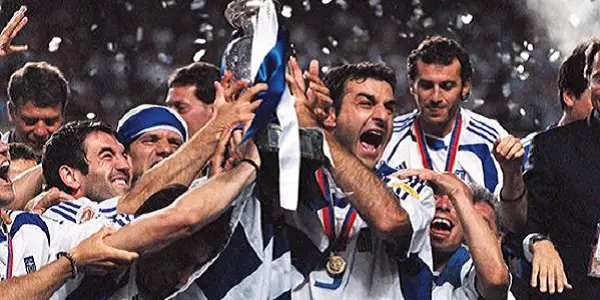
One thing that was new to me watching the film was seeing the public attitude towards the Greek national team before Mr. Rehhagel showed up as one of basically not caring at all. As Mr. Topalidis described it, when the German national team was training, thousands of people would show up even if it was in the middle of the night, whereas when Greece was training, no one even knew it was happening. It was really interesting to watch that attitude change over the course of the film.
Christopher André Marks: It was also the expectation level going in. Mr. Rehhagel was expecting there to be people always surrounding the training pitch because that was what he grew up with in Germany. So that was another area where he saw a difference, something that needed to be changed. Everyone in Greece was just very focused on club teams — even the players weren’t that interested in the national team. So he had to cultivate from the ground up a new appreciation for the national team of Greece.
For sure. The film focuses a lot on the differences between German and Greek culture and German and Greek people. The Germans are talked about as very disciplined and very blunt, while the Greeks are described as much more carefree and spirited. We see how a unique blending of cultures had to take place, and how Otto Rehhagel had to become a little Greek and the players had to become a little German in order for them to develop the mutual respect and understanding that led to their success. What lessons do you think we can take away from that, both on the field and off?
Christopher André Marks: Mr. Rehhagel’s message was to look at what unites us, not at what divides us. That really was the focal point. I think that’s what we want people to take away from the film, both in football and in life.
Film Inquiry would like to thank Christopher André Marks for taking the time to speak with us!
What do you think? What are your favorite sports movies? Share your thoughts in the comments below.
King Otto opened in theaters in the U.S. on March 25, 2022. You can find additional release dates here.
Does content like this matter to you?
Become a Member and support film journalism. Unlock access to all of Film Inquiry`s great articles. Join a community of like-minded readers who are passionate about cinema - get access to our private members Network, give back to independent filmmakers, and more.
Lee Jutton has directed short films starring a killer toaster, a killer Christmas tree, and a not-killer leopard. Her writing has appeared in publications such as Film School Rejects, Bitch: A Feminist Response to Pop Culture, Bitch Flicks, TV Fanatic, and Just Press Play. When not watching, making, or writing about films, she can usually be found on Twitter obsessing over soccer, BTS, and her cat.




